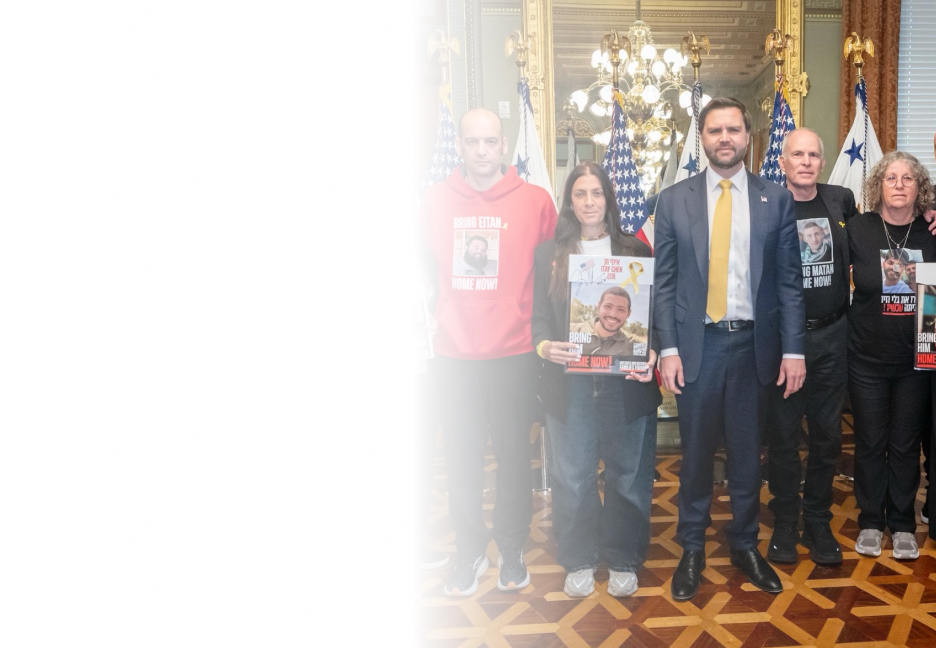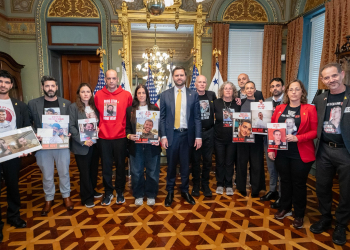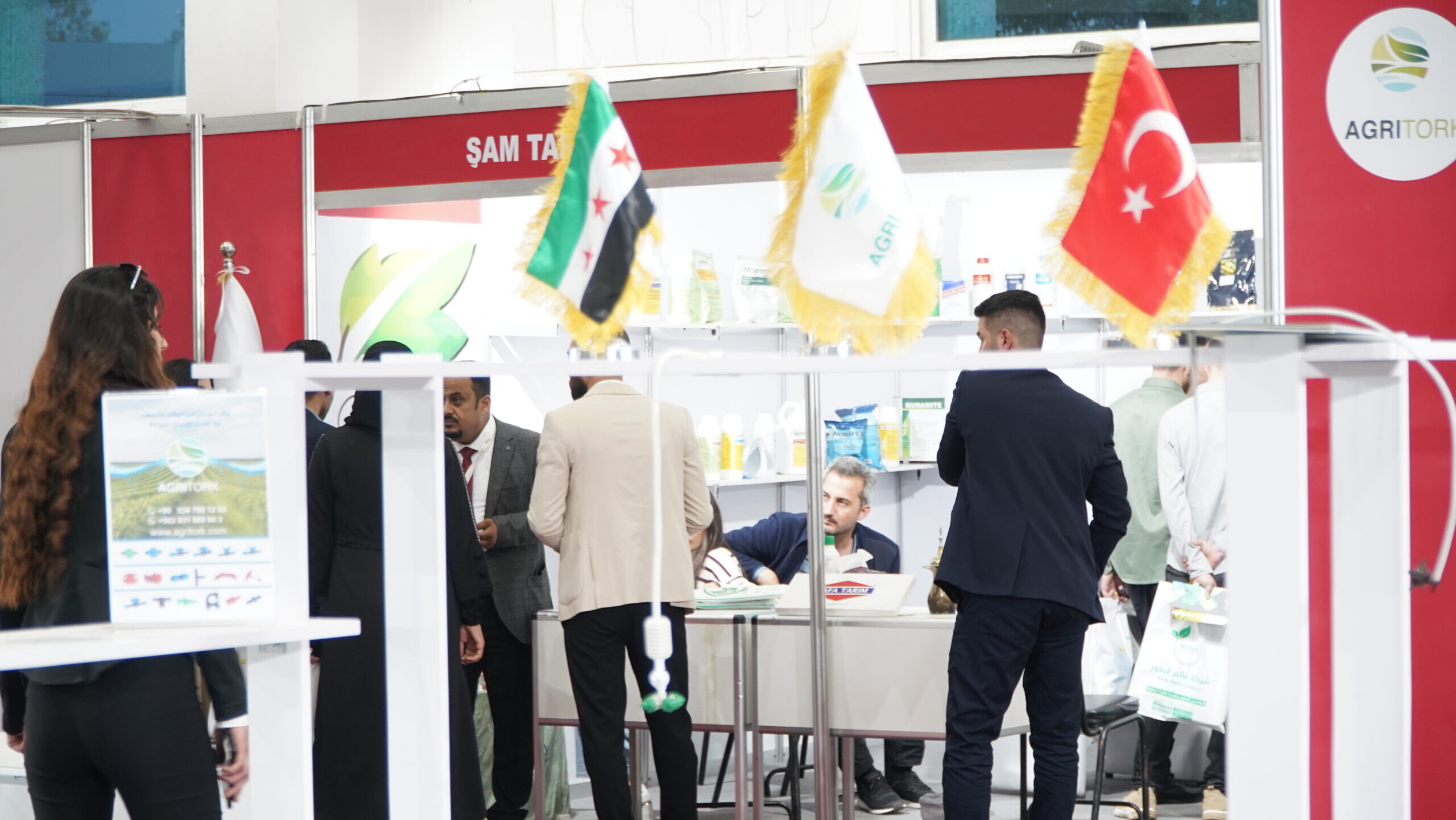Syria Hosts First International Trade Show Since Fall of Assad Regime
Syria hosts its first major international event since Assad’s fall—the Agro Syria Expo—signaling a push to revive agriculture and rejoin global markets
[Damascus] In a symbolic sign of Syria’s tentative reemergence on the international stage, Damascus is hosting its first major international event since the fall of President Bashar Assad’s regime last December: the third edition of the “Agro Syria” expo. The exhibition, focused on agricultural mechanization, livestock, and production supplies, has attracted nearly 120 companies from Syria, the Arab world, and beyond.
Held at the Damascus fairgrounds, the event signals a potential turning point for Syria’s devastated economy, which has been crippled by over a decade of conflict, sanctions, and institutional collapse. The exhibition showcases modern agricultural technology and veterinary innovations and serves as a public statement of Syria’s willingness to engage with regional and global markets.
For Syria’s agriculture sector, devastated by war and climate pressures, the exhibition offers a rare source of hope. Many farms were destroyed or abandoned during the conflict, and access to quality seeds, fertilizers, and irrigation systems remains limited. Veterinary services were similarly disrupted, leading to disease outbreaks among livestock and poultry.
Syria’s minister of agriculture, Amjad Badr, described the event as “a milestone for Syria’s agricultural sector,” emphasizing the government’s new commitment to fostering investment and rebuilding what he called the country’s “once-thriving rural economy.”
Today, Syria is open for agricultural investment. We will provide every possible facility to foreign and domestic investors, and we are actively working to address the structural challenges within the sector using modern, science-based approaches.
“Today, Syria is open for agricultural investment,” Badr told The Media Line. “We will provide every possible facility to foreign and domestic investors, and we are actively working to address the structural challenges within the sector using modern, science-based approaches.”
According to the UN Food and Agriculture Organization, agriculture remains a lifeline for millions of Syrians, providing up to 40% of national employment and the majority of rural income. Reviving the sector is seen as key to ensuring food security, stabilizing rural communities, and creating sustainable jobs.
Badr extended an invitation to agricultural experts, veterinarians, and entrepreneurs from across the Arab world and internationally, saying that Syria “is ready to rise again and reclaim its role among the most progressive nations in the region.”
This holiday season, give to:
Truth and understanding
The Media Line's intrepid correspondents are in Israel, Gaza, Lebanon, Syria and Pakistan providing first-person reporting.
They all said they cover it.
We see it.
We report with just one agenda: the truth.


“Agro Syria is more than a trade show,” Badr said. “It is a message to the world that Syrians are capable of rebuilding, innovating, and reengaging with their neighbors.”
This is the first major international exhibition held under the new Syrian government. The size and diversity of participation indicate that Syria is gradually regaining its economic vitality.
Mohammad Hamzeh, director of the Syrian Exhibitions Authority, told The Media Line that the event marks the revival of Syria’s once-prominent trade fair culture. “This is the first major international exhibition held under the new Syrian government. The size and diversity of participation indicate that Syria is gradually regaining its economic vitality,” he said.
Hamzeh emphasized the broader implications of the exhibition, suggesting that it represents a turning point not just for agriculture but for Syrian exports and foreign trade more generally. “We believe this is the beginning of a new phase in our international economic relations,” he said.
The expo was organized by the Mashhadani Group for International Exhibitions and Conferences. The group’s director, Khalaf Mashhadani, described the exhibition as a “strategic platform” for knowledge-sharing and trade.
“Agro Syria is not just a showcase—it is a meeting point for decision-makers, farmers, producers, and business leaders from Syria and abroad,” he told The Media Line. “It’s where deals happen and partnerships are forged.”
In previous years, I could only attend smaller exhibitions in northern Syria. This is the first time I’ve been able to join something of this scale in the capital, and it feels like a new beginning.
Among the attendees is Mohammad al-Qassem, a veterinarian participating in a national-level event for the first time since the fall of the Assad regime. “In previous years, I could only attend smaller exhibitions in northern Syria,” he told The Media Line. “This is the first time I’ve been able to join something of this scale in the capital, and it feels like a new beginning.”
Al-Qassem noted the presence of delegates from countries such as Jordan, Turkey, India, and Saudi Arabia, expressing optimism that Syria may once again become a hub for agricultural and scientific exchange. “Syria has always been a center of civilization and innovation. We are hopeful it will regain its status as a leader in both humanitarian and economic spheres,” he said.
The event is sponsored by Syria’s Ministry of Agriculture and supported by the Syrian Agricultural Chambers Union, the Syrian Veterinary Association, and the Arab Center for the Studies of Arid Zones and Dry Lands. These partnerships reflect a coordinated effort to revive key sectors critical to Syria’s long-term recovery.
Organizers say exhibitions like Agro Syria offer tangible economic opportunities in a country where rebuilding infrastructure, ensuring food security, and promoting rural employment are urgent priorities.
Despite the enthusiasm surrounding the event, the exhibition also takes place against a backdrop of continued political uncertainty, ongoing sanctions, and a fragile security landscape. Syria remains divided politically and territorially, and efforts at national reconciliation and international reintegration remain highly sensitive.
Still, Agro Syria’s relative success may serve as a signal of emerging pragmatism. Several observers say the participation of foreign companies—particularly those from neighboring Arab countries—reflects a regional recalibration toward engaging economically with Damascus, despite lingering political concerns.
While much remains uncertain in Syria’s political and economic trajectory, the Agro Syria exhibition represents an important, if symbolic, step forward. It is a sign that the country is seeking to reestablish itself as a player in regional commerce and to attract the investment and innovation needed to rebuild from the ground up.
The fair continues through Sunday, with additional panels and matchmaking sessions planned between local producers and international buyers. Organizers say they hope it will become an annual tradition in Syria’s path toward recovery.



